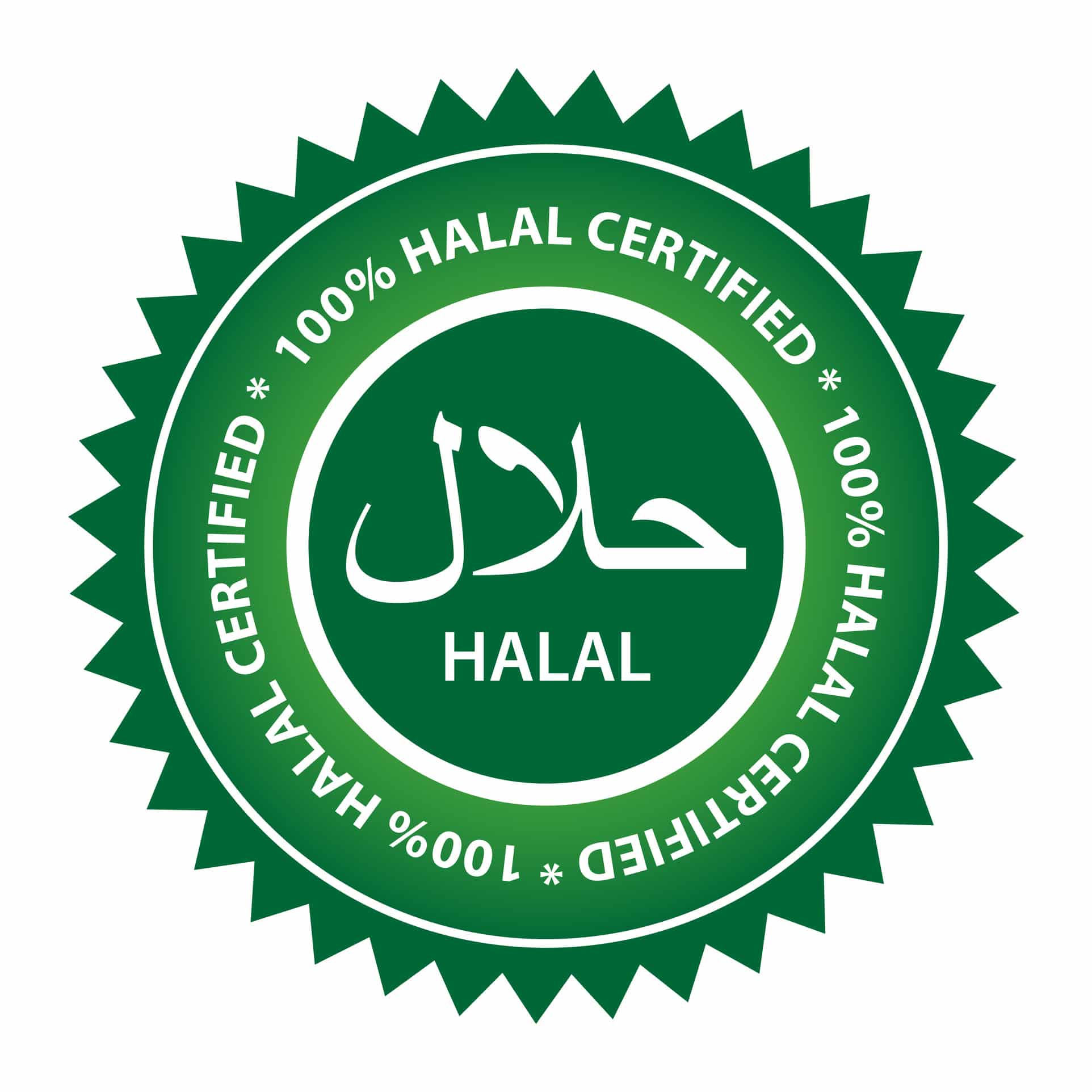Halal Certification

Halal vs. haram
Most people are familiar with the term “halal” from the food industry. For Muslims, the concept of halal must also be applicable in other areas of life, including beauty and personal care products. Halal or the full term “Halalantoyyiban” means “permitted” in Arabic. It is important that Muslims only consume what is compatible with Islamic Sharia law. This is because it is a commandment of God in Islam that a Muslim may only consume what is clean and healthy for them and has no harmful effects. Ingredients such as pork and its derivatives, khamr or liquor, blood, carnivorous animals and materials derived from animals that are not halal are considered “haram” or must not be consumed.
Halal certification
According to a 2017 report by Grand View Research, the global halal market was estimated at 16.32 billion US dollars or 15.14 billion euros in 2015 and is expected to grow to 52 billion US dollars by 2025. For this reason, more and more cosmetics companies worldwide are trying to introduce their products to the Muslim market.
Many companies are now voluntarily seeking halal certification. Not only to expand their customer base, but also to reassure consumers in general that their products are safe to use, hygienic and of high quality.
As there are no official government bodies regulating halal certification in Western countries, there are many private halal certification bodies. However, it can be a little confusing for manufacturers as to which private body they should apply to for halal certification. Manufacturers should therefore make sure that the halal certification bodies are accredited by well-known Islamic councils from countries with a large Muslim population, such as MUI Indonesia, JAKIM Malaysia, MUIS Singapore and CICOT Thailand.
Halal certification process
A typical halal certification process usually begins with an application from the company to the certifier, who then carries out a preliminary assessment to decide whether the product the company wishes to certify is suitable for halal. If this is the case, the company must submit all the documentation required for the assessment process, i.e. the list of all the product’s raw materials and suppliers, the additives and auxiliary materials used, lubricants, packaging materials and the cleaning agent used to clean the machine.
In this case, it would be ideal if the company already uses halal-certified raw materials. Therefore, it is necessary to choose suppliers who are already familiar with Halal so that there will be no difficulty in obtaining the certificate from them. It is also strongly recommended that the company does not use critical ingredients such as ethanol, animal gelatine or collagen and other animal ingredients to simplify the certification process.
The next step is an on-site audit. This step is crucial for the certifier to verify the legitimacy of the documents submitted. When conducting the audit, the certifier can also see for themselves whether the manufacturer carries out high-quality production and whether a proper and thorough cleaning process is carried out. In particular, it is important to know whether proper separation is being carried out. If non-halal ingredients or materials are present in the production facility or warehouse, it is imperative that cross-contamination is avoided through complete segregation to ensure the integrity of the halal product.
For halal certification, it is also important that manufacturers have clear traceability of products, as it is important under Islamic Sharia law to know the exact origin of the products consumed.
Once the halal certifier has gained a comprehensive insight into the company and the manufacturing process, they can decide whether to award the certificate. Depending on the criticality of the product, halal certification is usually valid for one year. After one year, the manufacturer must renew the certificate and go through the recertification process.
Halal certification with Cosmacon!
With over 25 years of experience, we at Cosmacon GmbH recognise the importance of halal cosmetics. We offer a formulation service for Halal compliant cosmetic products for companies looking to extend their brands to Muslims. We can help you with Halal certification by arranging a comprehensive and professional check of all raw materials. Get in touch with us!
Sources:
Trends and challenges in phytotherapy and phytocosmetics for skin aging.; Saudi J Biol Sci. 2022 Aug;29(8):103363.
Awareness and intention to register halal certification of micro and small-scale food enterprises.; F1000Res. 2023 Mar 29;11:170.